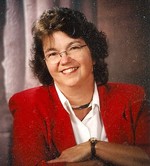 Nes Gadol Hayah Sham
Nes Gadol Hayah Sham
Finding the trancendant God in other traditions
By Roberta Updegraff
Advent is a whirl of emotion percolated in frenzied activity, yet Christmas comes quietly—often surprisingly. As it did in 1985.
I was full-bloom in motherhood, our third just cooing—a perfect stand-in for Jesus in the manager, and I felt in control of Christmas tradition. I would design our memories. Our oldest held a staff in makeshift shepherd garb, our middle sang alto in the cherub choir, and our Jewish best friends sat in our family pew. It seemed my perfect family Christmas.
Then these dear friends, surrogate uncle and aunt, presented our children with candy-filled dreidels. Theirs a heroic holiday, celebrating when God provided the beleaguered Jews with not only oil for their lights, but their victory in battle as well. Hanukkah occupies a comparable place in our cumulative holiday traditions, but stood starkly between us and them.
“Why don’t Uncle Harold and Aunt Hazel have a Christmas tree?” my middle daughter asked.
My six year-old rolled his eyes. “Because they have a Hanukkah bush, stupid.”
The Hanukkah bush was an awkward response to another symbol that separated us. We included our friends in our annual tree trimming, and joked about them putting up a Jewish facsimile. Throughout our years of friendship, we gingerly waltzed around the wall separating our religions, refusing to confront what my daughter so innocently questioned.
Their gift of candy-filled dreidels brought the Dedication of Lights to our Christmas consciousness. Jesus may have observed it, and certainly knew the story of the Hanukkah. The Maccabees had fought for the right to worship the One True God over a century earlier. Jesus may not have spun a dreidel, but understood “Nes Gadol Hayah Sham – A great miracle happened here.”
The four-sided top with a Hebrew letter on each side commemorates that miracle. Shin, hey, gimel, and nun, proclaim the intervention of God in time on behalf of his faithful followers. God sustained his people through four empires, Babylon, Persia, Greece and Rome and continues to do so today.
The winner of the spin understands it is not luck, but providence that determines the game. The Lord seems to reward the just and the unjust alike, but God sees the bigger picture, and knows the ultimate outcome. Generations of faithful Jews and Christians have trusted God in times of great loss, as well as in times of great prosperity.
The spin of the dreidel is a call to Kingdom—to put our fate in the hands of Jehovah. “A miracle has happened here,” proclaims the Hebrew script–God will be God for all eternity. God controls the hand that twists the dreidel and all the ramifications of the spin. And God will be glorified–The Great I Am. Shin, hey, gimel and nun are God’s script, written on the hearts of Maccabean warriors and their descendants.
God brought our families (Christians and Jews) together in friendship. We have participated in the Passover Seder meal at their home, and our son enjoyed the honor of asking the four questions. We have grieved with one another through the deaths of loved ones, trusting the same God to console us.
It was the red plastic driedel still filled with chocolate coins that I found in the bedroom desk drawer of my now 37-year-old son that brought the bittersweet reminder this year. Christmas comes with pain Hazel is now deceased, and Harold lives on the other side of the state. He is still Uncle Harold to our grandchildren. I will slip that driedel into the stocking of my son’s son with fondness, thankful for the memories it might conjure.
God remains yud, the pivotal dot on which life turns.
Roberta Updegraff is the author of six mysteries with Guidepost Books and was featured in their compilation Prayers for Every Need. Her work has appeared in diverse publications including Mission Mosaic, Christianity Today and Focus on the Family. She is also an ambassador for Special Offerings. She and her husband support Hogar de Niños Renacer (Home of Reborn Children), an orphanage in Honduras where Roberta volunteers several weeks each year. They live in northern Pennsylvania. Visit her website.